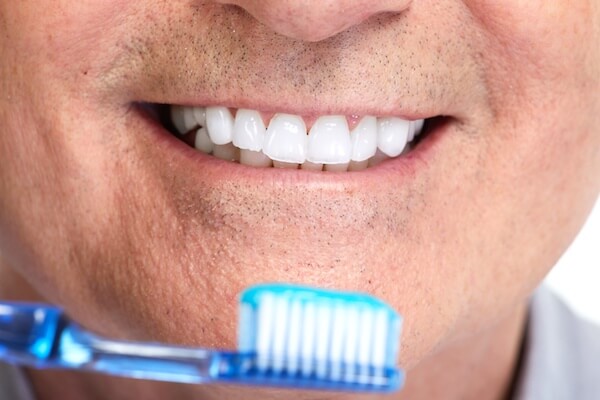
Periodontal Disease and Colon Health
Gum disease is a common condition in the United States, according to the Centers for Disease Control and Prevention (CDC), affecting nearly half the adult population. Gum disease can affect the health of other body systems and organs, including your colon. In fact, it can even increase your risk of colon cancer.
Colon health is important to digestion and overall wellbeing. Colon diseases, such as irritable bowel syndrome, inflammatory bowel disease, colitis, Crohn’s disease and colon cancer can cause significant ill health and even death.
Colorectal cancer affects the lowest part of the digestive tract. It is the third leading cause of cancer-related deaths in the United States, according to the American Cancer Society. Colorectal cancer will claim approximately 50,630 American lives in 2018.
Medical researchers are still investigating the possible underlying causes of colorectal cancer. New research suggests periodontal disease may play a role in colon health and colorectal cancer.
About Periodontal Disease
There are three stages of gum disease: gingivitis, periodontitis, and advanced or severe periodontitis. Periodontal disease can damage your gums and destroy your jawbone. Left untreated, periodontal disease can lead to tooth loss.
Periodontal disease is the result of poor brushing and flossing habits that allow a sticky film of bacteria, known as plaque, to develop on your teeth and harden there. Advanced periodontal disease can lead to sore, bleeding gums, particularly during brushing and flossing. Advanced periodontal disease can cause painful chewing problems and even lead to the loss of one or more teeth.
Symptoms of periodontitis include swollen, tender, red or bleeding gums. Bad breath or a bad taste in one’s mouth may occur. As gum disease advances, the gums may recede to expose tooth roots. This can lead to loose teeth. Visible pus may surround teeth and gums.
Gum disease is characterized by inflammation, which is the body’s response to the bacterial infection associated with periodontal disease. The inflammation can start in the infected gum but then spread throughout the different systems of the body. This systemic inflammation can affect the body’s immune system, which fights infection. Inflammation can also kill off the beneficial bacteria living in your gut, which leaves your intestines at risk for disease.
Inflammation is a natural process, driven by cells responding to intrusions to the body. Inflammation is actually a beneficial process in that it protects the body. Chronic inflammation, like that with gum disease, is actually a destructive process that causes tissue damage in the gums and other tissues. This means inflammation in the gums could cause inflammation in the gut in ways that affect colon health.
Many conditions and diseases affecting the colon involve inflammation. Inflammatory bowel syndrome involves inflammation, for example, but other gut problems are also associated with inflammation.
Research Connecting Periodontal Disease and Colon Health
Research shows that an infection from a common type of mouth bacteria could contribute to the development of colorectal cancer. The results of one study showed that levels of the bacteria, known as Fusobacterium nucleatum, are higher in people with gum disease.
Other studies support these findings to suggest a link between periodontal disease and colon health. Because severe periodontal disease causes tooth loss, researchers often use missing teeth as a benchmark for study. In research using information gathered from the Nurses’ Health Study, researchers followed 77,443 women and found that women with fewer teeth were at a higher risk of colorectal cancer. The authors of this study suggest that the bacteria can enter the bloodstream then flow to the digestive tract and attach to cells of the colon, which triggers a sequence of changes that can lead to colon cancer.
Good oral hygiene and proper nutrition can reduce the risk of periodontal disease. Proper nutrition can also play a significant role in colon health.
For more information on periodontal disease and its effects on colon health, make an appointment with a periodontist. Your periodontist can detect, treat and help you prevent periodontal disease so it does not affect your smile or your overall health.